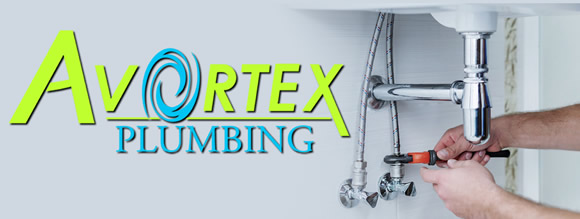With our years of experience as professional plumbing specialists we’ve seen it all; from your standard leaking faucet fixtures to full blown plumbing disasters, we’ve been there. But did you know that a majority of plumbing problems are self-inflicted? That most often, extensive plumbing repairs are the result of careless use and poor maintenance techniques?
In this blog post, we’ll go over six of the most common mistakes we’ve seen homeowners make with their own plumbing, and advise you on alternative ways to care for your home drains and pipes… ones that will ensure high performance plumbing for years to come.
One of the most common plumbing mistakes we see comes from the carelessness of homeowners; they see and acknowledge the signs of a plumbing problem, but put them off until later, or ignore the issue altogether. When you don’t take immediate action to keep your pipes running effectively, you create conditions in which these issues and minor symptoms can snowball into full-blown plumbing disasters.
When you notice frequent drain clogging, insufficient water flow and pressure, leaks and irregular water concentrations, act. Too often, major plumbing problems are the result of homeowners letting smaller, minor problems slip by; these indicators will often worsen over time, and require extensive plumbing repairs later on if left untended to.
However, you shouldn’t wait for the warning signs of plumbing failure to maintain your pipes; a regular, once a month self-inspection could help prevent a slew of major plumbing problems from developing down the line. The key to plumbing self-inspections is prevention. With a regular inspection schedule, you can stay ahead of any plumbing issues and resolve them proactively, before they can develop into disasters.
Additionally, we recommend having a professional plumbing inspection at least once per year. Trained specialists will have a stronger eye for plumbing issues you may not even be aware of, so having that input could save you money in the long run, should they catch an undetectable warning sign early.
Another common plumbing mistake is the gratuitous use of chemical cleaning products to dislodge drain clogs. These products, while an emergency solution for minor clogging and grime buildup, can actually harm your pipes after extensive use, as the chemical reactions that make these products work can eat away at inner pipe walls, and are even dangerous upon contact in some conditions.
Instead, we recommend less harmful home remedy solutions, such as simple vinegar and baking soda solutions, or even a hot water flush. Chemical cleaners can be counterproductive when run through your plumbing systems; instead, opt for equally effective, much safer alternatives.
Many plumbing problems also come from poor treatment of pipes, drains and garbage disposals. Often, homeowners run whatever they want through their plumbing, thinking their pipes and disposal systems can take it; however, this is a grave mistake, and very commonly leads to severe pipe damage and buildup later on.
Know what can and cannot cycle through your garbage disposal. For instance, avoid running fibrous, stringy foods, plastic wrappers, animal bones and excess fat/grease in your disposal. These agents can damage your disposal’s blades, and very often cause significant buildups within home pipe systems.
Another extremely common (and extremely risky) plumbing mistake we come across occurs when homeowners attempt DIY plumbing repairs without the right tools, techniques or system know-how to effectively resolve their plumbing issues. Frankly, it’s better to seek a specialist’s opinion than to get in over your head with difficult DIY repairs.
However, if you do attempt DIY repairs to fix issues with your home plumbing, it’s important that you have the right tools on hand; fortunately most of the plumbing tools you’ll need will be available at your local home improvement store. These tools include:
- Basin wrenches and standard pipe wrenches
- A metal file
- A Hacksaw, for cutting through existing pipe
- A plumber’s snake, which can be your best friend when dealing with frequent drain clogs
- Adjustable, hex-shaped wrenches
Beyond having the right tools, also make sure you know fully what part of your plumbing system is causing a problem, and how best to fix that problem. With something as sensitive as plumbing, you don’t want to go in “blind” and make matters worse.
The above point, of course, leads us to one of the biggest plumbing mistakes you can make: not getting professional help when it’s necessary. Yes, calling your local plumbing specialist and having an expert inspection and renovation will cost you money… but it will be cheaper than ignoring the problem, or trying doomed DIY repairs.
If you find yourself in over your head with pipe damages or failed DIY repairs, contact a professional. Not getting the help you need when you need it, or putting off calling an expert until later, are some of the worst mistakes you can make with issues in your home plumbing. Don’t make these careless plumbing mistakes; take care of your drains and pipes, and call a professional when necessary.

